
Many retailers are struggling and quite a few are even closing up shop — but that is not because Americans don’t like to shop. In fact, overall consumer spending is up. Americans just like to shop in a comfortable format, any time of day.
And some retailers seem to have discovered the key to attracting their customers. These brick-and-mortar retailers and online ecommerce platforms have been consistently reporting growing sales.
Some have found success because they understand current consumer preferences and lifestyle trends. Natural Grocers by Vitamin Cottage and Sprouts Farmer Market stock their shelves with natural, organic groceries appealing to the current health of organic and food with less additives.
Others, like Lululemon Athletica, did not so much hop onto a growing trend but rather created an entirely new one. Before Lululemon, workout wear was boring; now exercise enthusiasts can wear fashionable “ath-leisure” outfits while they tone their bodies.
Among the names on this list are some stalwarts everyone will recognize. Apple and Costco are now mainstays in the retail field. Even though the company has no stores, Coty cosmetics can be found at any retail establishment.
For now, these retailers appear to have beaten the retail headwinds as they continue to capture the imagination (and dollars) of consumers. Let us see if they can continue to succeed.
Click here to see the world’s 20 fastest growing retailers
To determine the fastest growing retailers, 24/7 Wall St. identified the publicly-traded companies with the highest annual sales growth as of the 2018 fiscal year. We only considered those companies with at least 5% sales growth in the 2017 fiscal year.
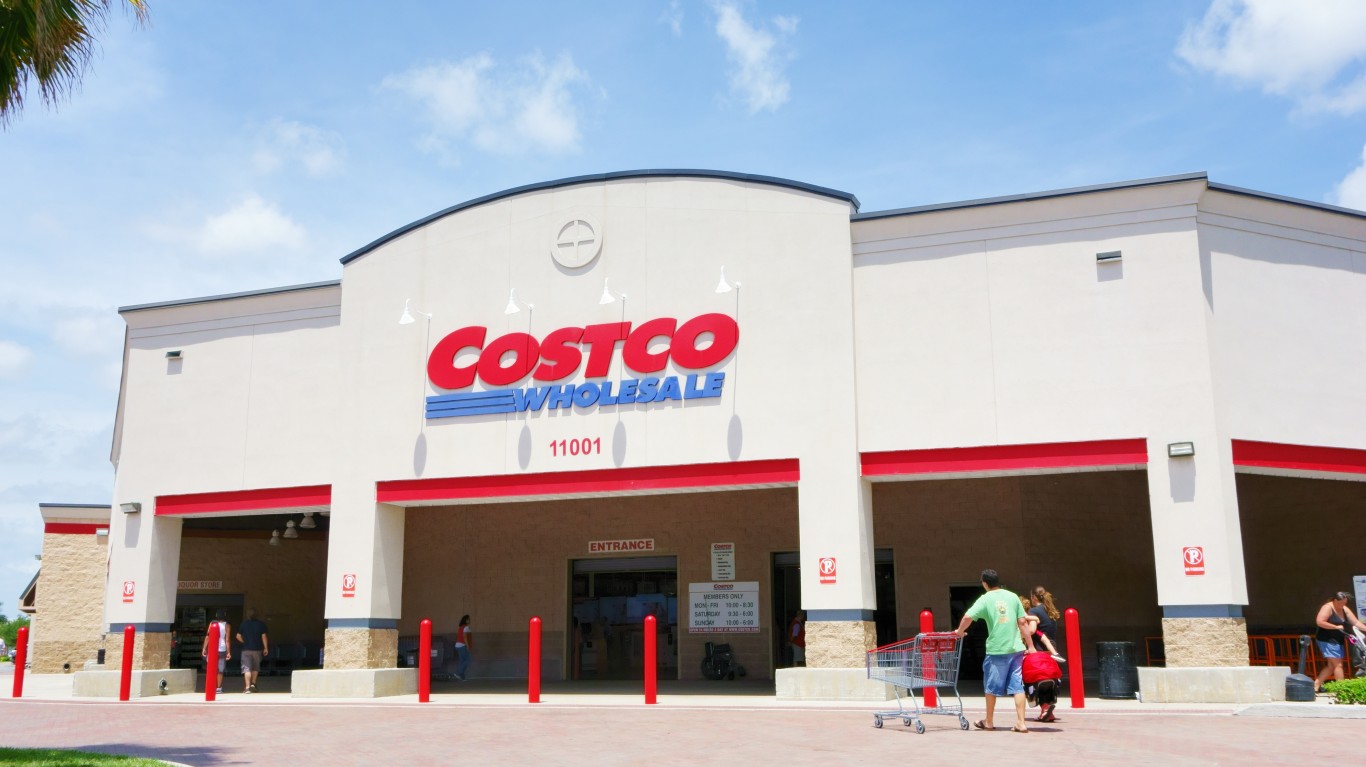
20. Costco
> 2017-2018 sales growth: 9.7%
> 2017 revenue: $129.03 billion
> 2018 revenue: $141.58 billion
> Headquarters: Issaquah, Washington
> # of locations: 770
When Price Club merged with Costco back in 1993, the combined company took the membership warehouse concept to the next level. Costco’s latest financial results prove consumers do not mind paying a membership fee if they can get name-brand goods at cheap prices. In 2018, revenue increased to $141.6 billion from $129.0 billion in 2017. The company currently employs 245,000 workers.
[in-text-ad]
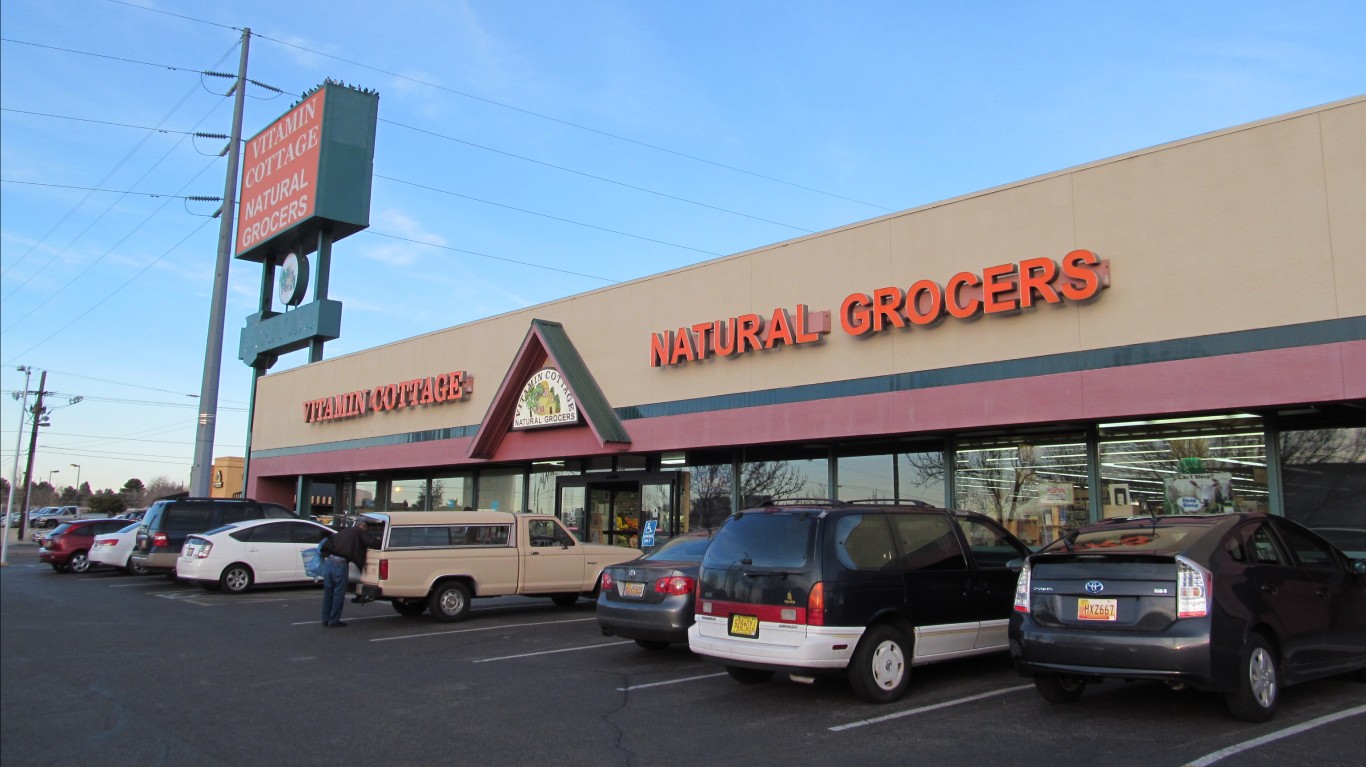
19. Natural Grocers by Vitamin Cottage
> 2017-2018 sales growth: 10.4%
> 2017 revenue: $769.03 million
> 2018 revenue: $849.04 million
> Headquarters: Lakewood, Colorado
> # of locations: 152
When Margaret and Philip Isely founded Natural Grocers by Vitamin Cottages in 1955, the general public did not know much about organic foods. But an illness after the birth of her second child forced Margaret to learn all she could about good nutrition and natural foods. From there, Margaret and Philip began to educate the public on healthy eating and soon opened stores. Today, the Isely family still oversees a grocery empire that sells products with no preservatives, artificial colors, or hydrogenated oils. All of the chain’s products are certified organic by the USDA. In fiscal year 2018, Natural Grocers reported a 10.4% net sales increase, from $769 million in the prior year to $849 million.
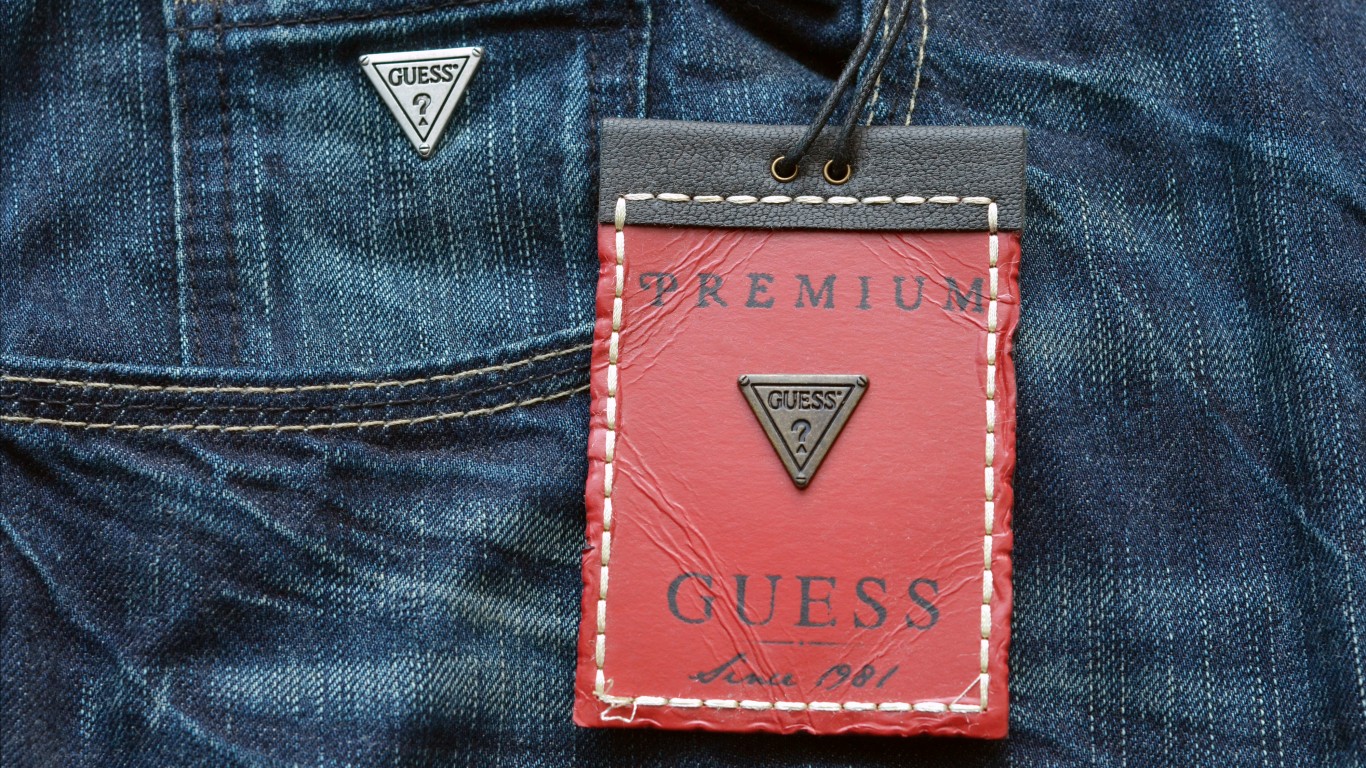
18. Guess Inc.
> 2017-2018 sales growth: 10.4%
> 2017 revenue: $2.36 billion
> 2018 revenue: $2.61 billion
> Headquarters: Los Angeles, California
> # of locations: 1,161
Known for its edgy, youthful appeal, Guess, Inc. has expanded from its roots as a jeans manufacturer in 1981 to a full-fledged lifestyle brand, hawking handbags, apparel, footwear, watches, and, yes, jeans. The retailer looks to continue its tradition of targeting a younger audience with a summer advertising campaign showing models on a road trip through the desert. It is a tactic that has served it well in the past and may have helped push its net revenues to $2.6 billion in fiscal 2018 from $2.4 billion in fiscal 2017.
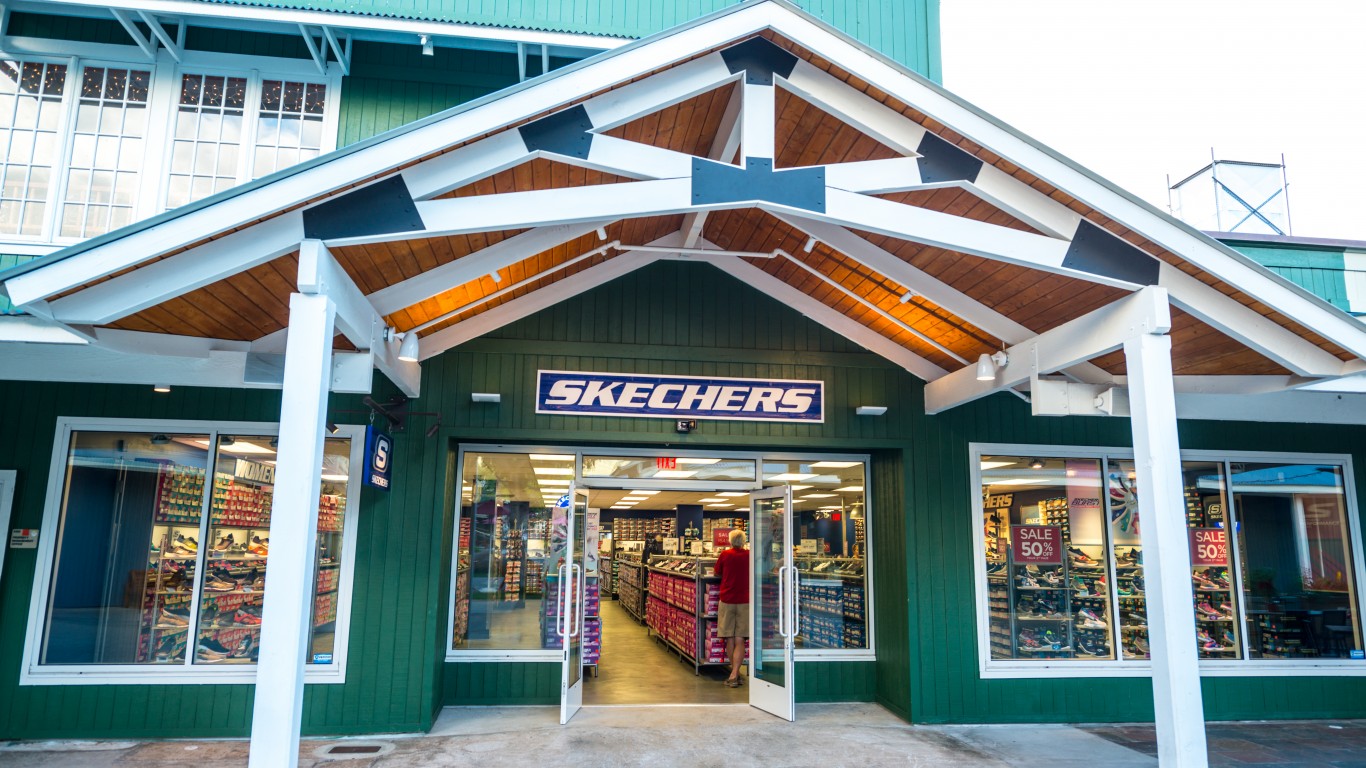
17. Skechers USA
> 2017-2018 sales growth: 11.5%
> 2017 revenue: $4.16 billion
> 2018 revenue: $4.64 billion
> Headquarters: Manhattan Beach, California
> # of locations: 3,000
What began as a manufacturer of logger boots in 1992 has grown into an expansive footwear company offering shoes for every gender and age. In the first quarter of this year, the company posted record sales of $1.28 billion. Net sales soared from 4.16 billion in 2017 to 4.64 billion in 2018.
[in-text-ad-2]
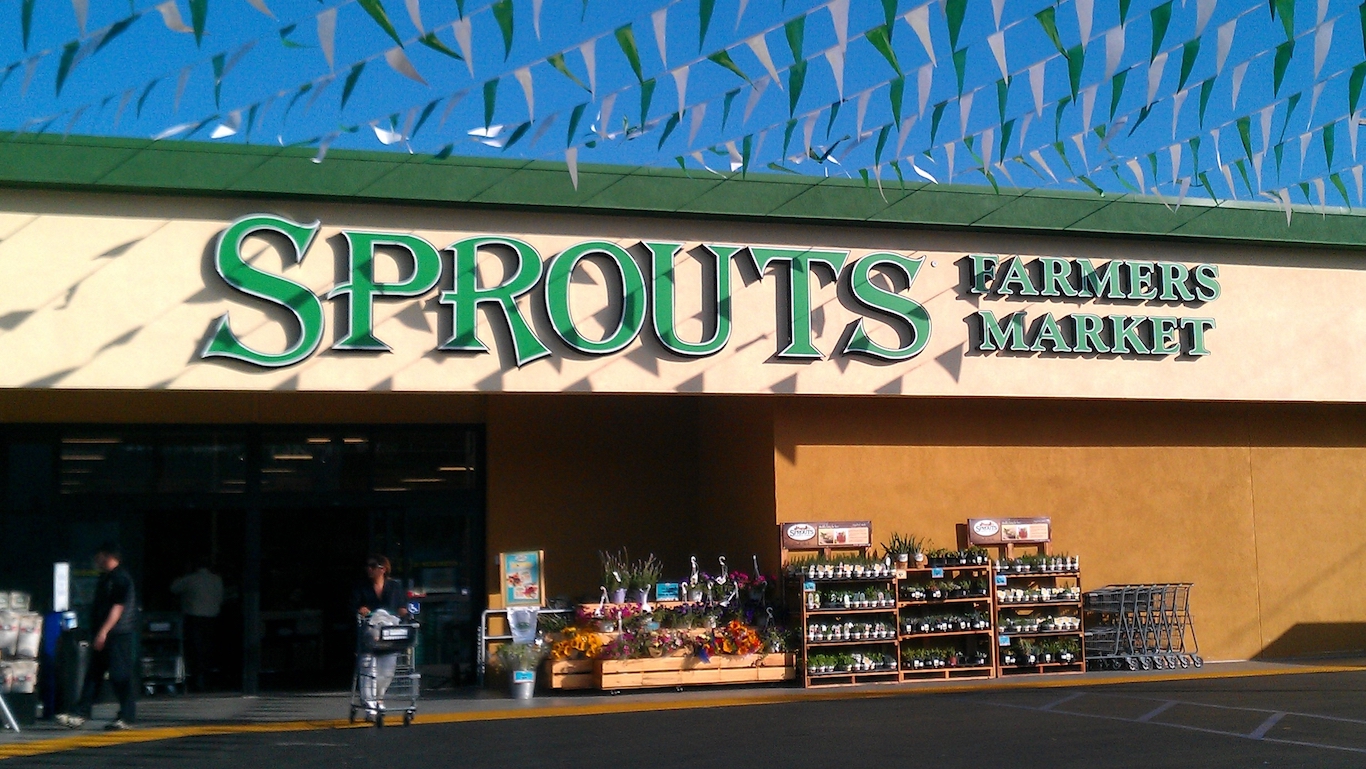
16. Sprouts Farmers Market
> 2017-2018 sales growth: 11.6%
> 2017 revenue: $4.66 billion
> 2018 revenue: $5.20 billion
> Headquarters: Phoenix, Arizona
> # of locations: 300+ stores in 22 states
Launched in 2002, Sprouts Farmers Market quickly became one of the public’s preferred organic, natural foods store. Today the chain manages more than 300 stores employing 30,000 associates. The store format includes fresh produce, prepared entrees, a butcher shop, a fish market, and a vitamin supplement department. The company continues to expand, announcing in April the opening of 13 new stories in the second half of 2019 in Florida, Maryland, North Carolina, Virginia, Arizona, and California, growing its chain to 340 stories in 22 states. The retailer reported a net sales total of $5.2 billion in 2018, an 11.6% jump from the previous year.
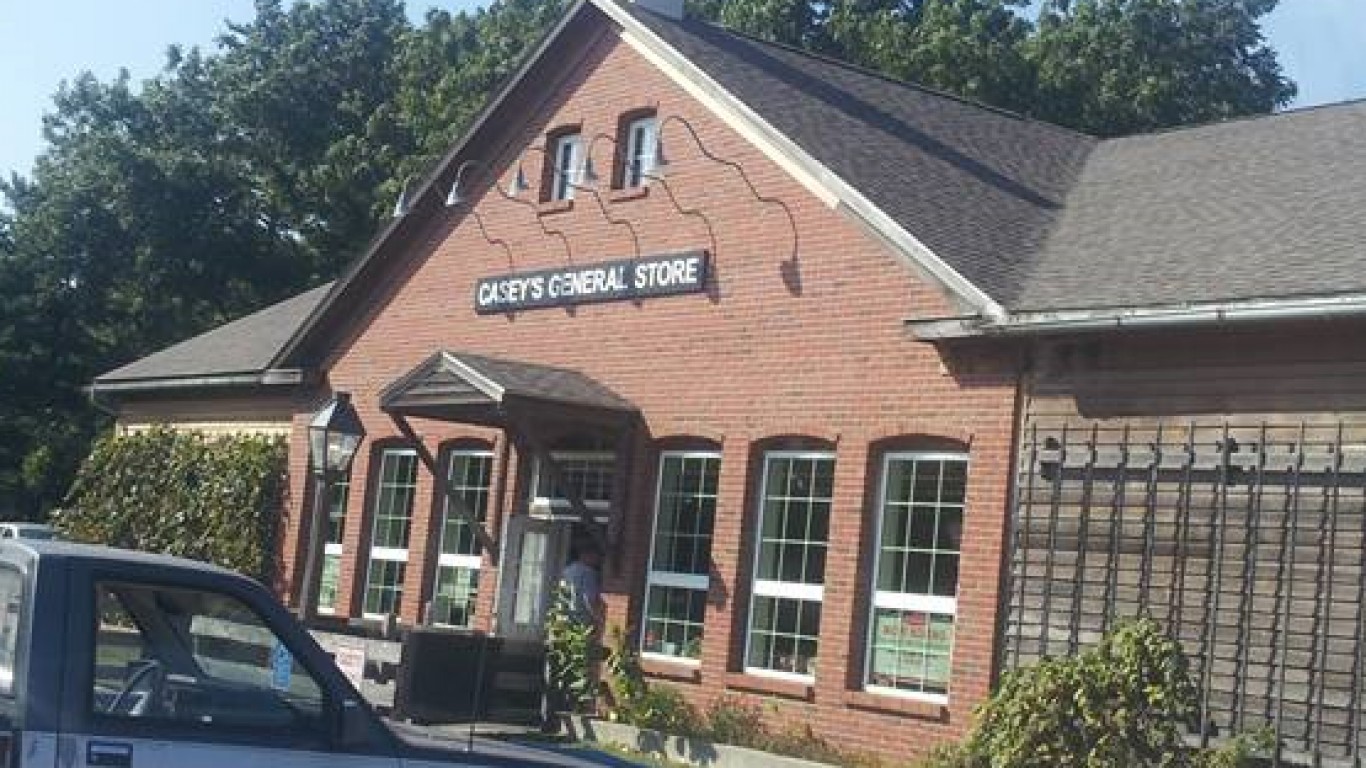
15. Casey’s General Stores
> 2017-2018 sales growth: 11.8%
> 2017 revenue: $7.51 billion
> 2018 revenue: $8.39 billion
> Headquarters: Ankeny, Iowa
> # of locations: 2,000+
From its first store opening in 1968 in Boone, Iowa, Casey’s General Stores has exploded into a business that operates 2,123 Midwest-based locations, more than half of which are located in areas with 5,000 or fewer people. The stores are set up as self-service gas stations attached to convenience stores that are stocked with prepared foods like pizza and sandwiches as well as an array of grocery items. In March, Casey’s General Stores acquired Fantasy’s Convenience stores and Ride the Wave car washes in the Omaha, Nebraska, metro area. According to the company, it now ranks as the fourth largest convenience store chain in the U.S. and the fifth largest pizza chain. Between 2017 and 2018, total revenues increased from $7.5 billion to $8.4 billion, an 11.8% increase. The chain currently employs more than 35,000 associates.
[in-text-ad]
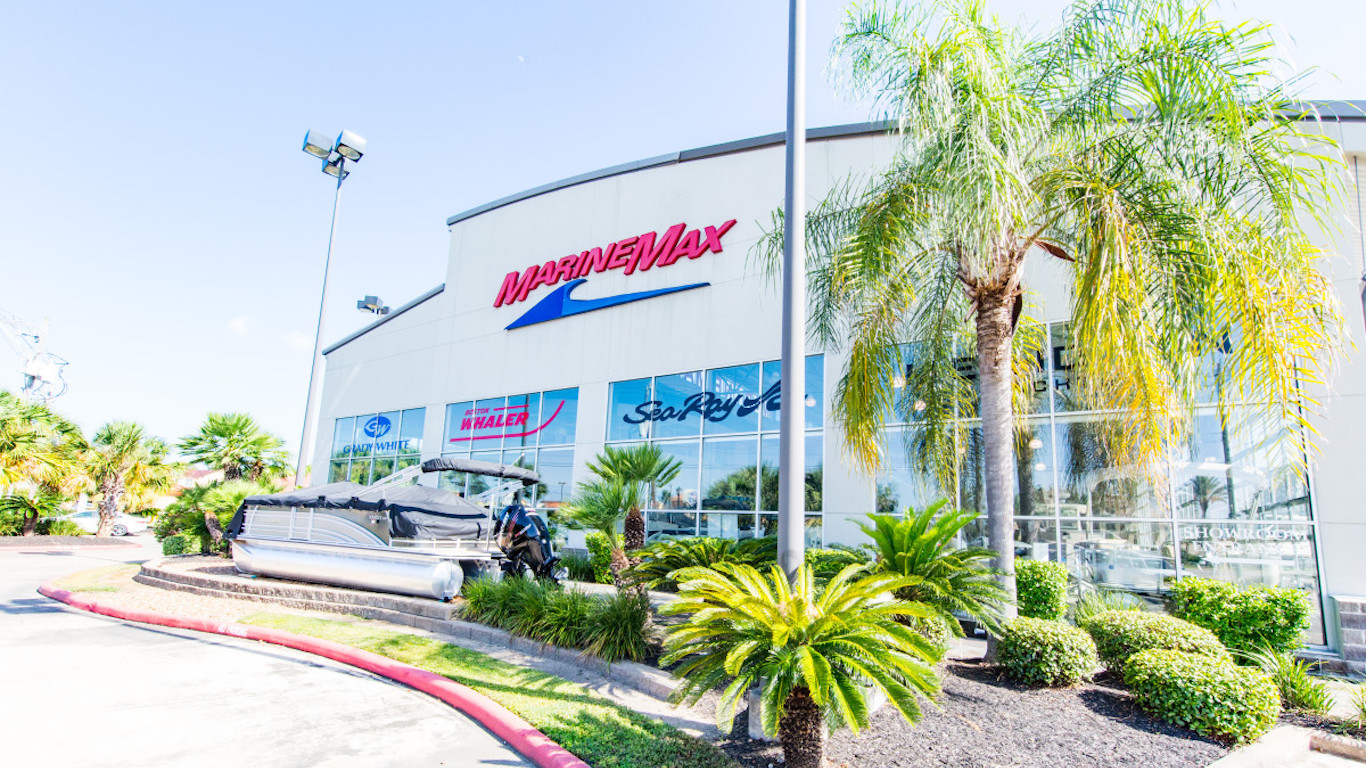
14. MarineMax
> 2017-2018 sales growth: 11.9%
> 2017 revenue: $1.05 billion
> 2018 revenue: $1.18 billion
> Headquarters: Clearwater, Florida
> # of locations: 67
Selling top-name new and used recreational boats and yachts, MarineMax recently completed its acquisition of Sail & Ski Center, giving the company a foothold in the Austin and San Antonia, Texas, markets. In 2018, Sail & Ski was listed by an industry publication as a top 10 dealer in North America. In addition to its retail sales, MarineMax also serves as a broker and charter service provider. In the second quarter, the company reported $303.6 million in revenue, an 11.9% increase compared to the same quarter a year ago.

13. Aaron’s
> 2017-2018 sales growth: 13.2%
> 2017 revenue: $3.38 billion
> 2018 revenue: $3.82 billion
> Headquarters: Atlanta, Georgia
> # of locations: 1,599
If consumers can lease cars, why not furniture? That is the founding principle of Aaron’s, which has built a far-reaching retail chain offering both sales and lease contracts of furniture, consumer electronics, home appliances, and other home accessories. Launched in 1955, Aaron’s became a publicly traded company 1982. Like every retailer today, it also has an online presence, Aarons.com. The company announced that during the first quarter it closed 85 company-operated stores while acquiring four franchised outlets. The company reported a 13.2% sales growth, with revenues growing from $3.4 billion in 2017 to $3.8 billion in 2018. The company is staffed by 11,800 employees.
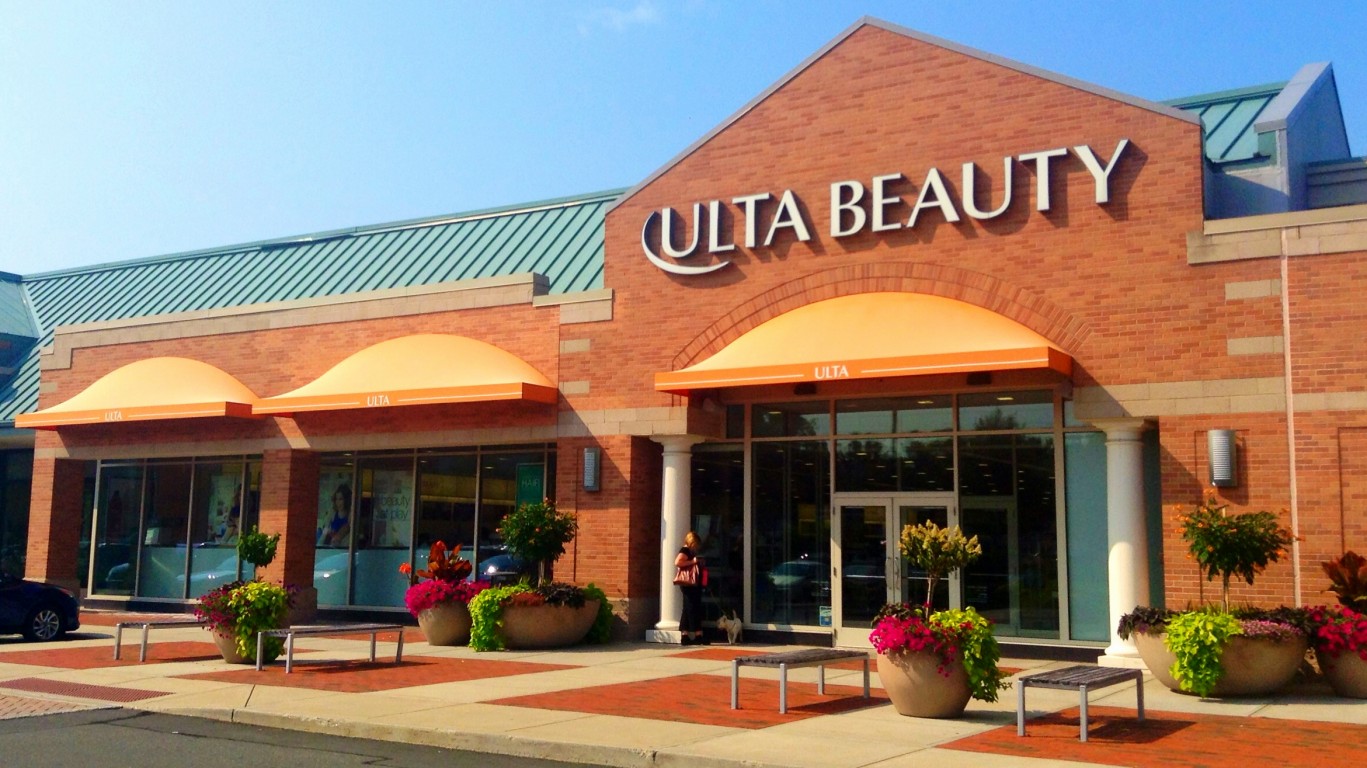
12. Ulta Beauty
> 2017-2018 sales growth: 14.1%
> 2017 revenue: $5.88 billion
> 2018 revenue: $6.72 billion
> Headquarters: Bolingbrook, Illinois
> # of locations: 1,174 stores
In addition to 25,000 beauty products, including its own proprietary label, Ulta Beauty offers the services of a full-service hair and skin care salon on premises. Given the growth of its net sales, which rose from $5.9 billion in 2017 to $6.7 billion last year, customers are definitely flocking to its doors.
[in-text-ad-2]
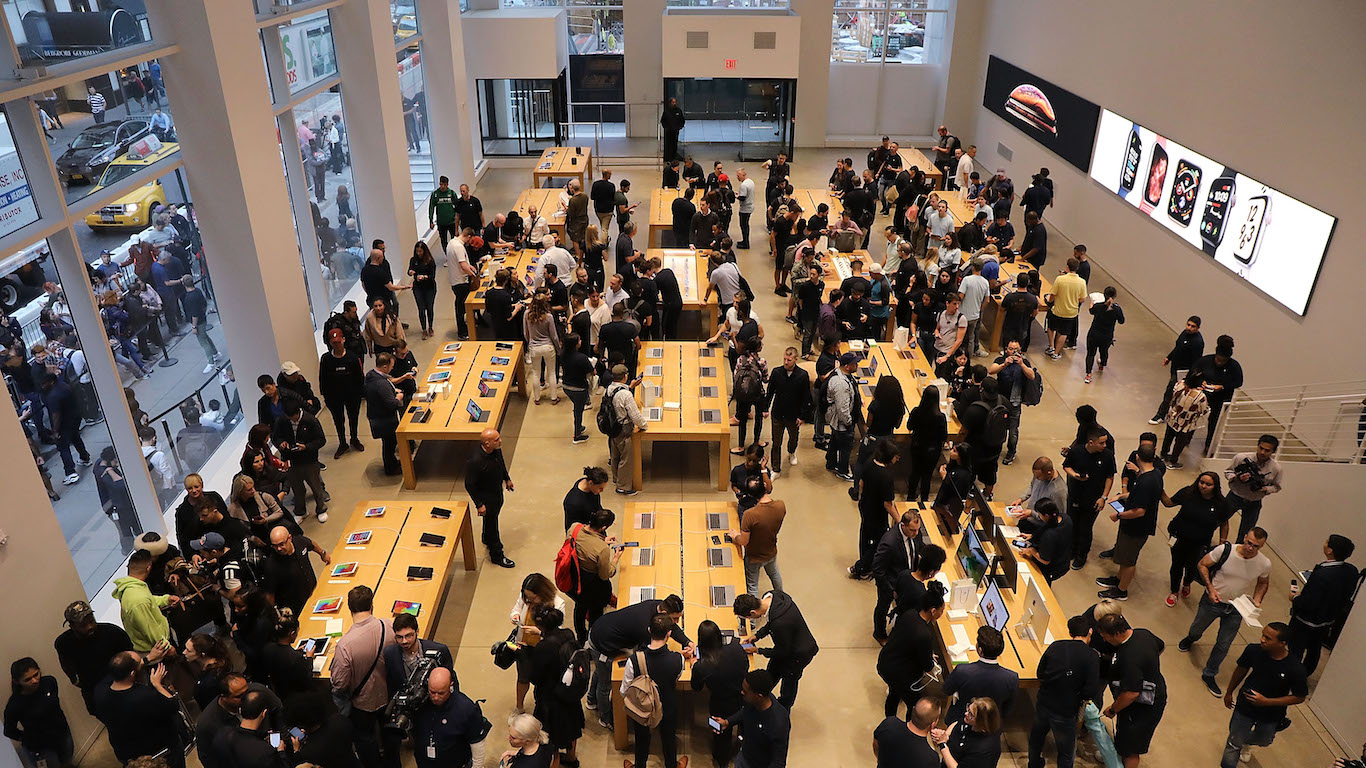
11. Apple
> 2017-2018 sales growth: 15.9%
> 2017 revenue: $229.23 billion
> 2018 revenue: $265.60 billion
> Headquarters: Cupertino, California
> # of locations: 506
The majority of Americans have been touched by an Apple product in some fashion, whether it is their home or office computer, smartphone, music streaming service, or their watch. When the company announces a new product, it is usually front page news that sends ripples throughout the tech world. But even this tech giant realized it is all about good customer service. Its retail stores now dot the halls of malls in the U.S., where Apple devotees can get their equipment serviced and learn more about Apple products. For all its products, the iPhone seems to be Apple’s best seller. The company reported $36.4 billion more in net sales in 2018 compared to 2017, a 15.9% growth, mostly due to its iconic smartphone.
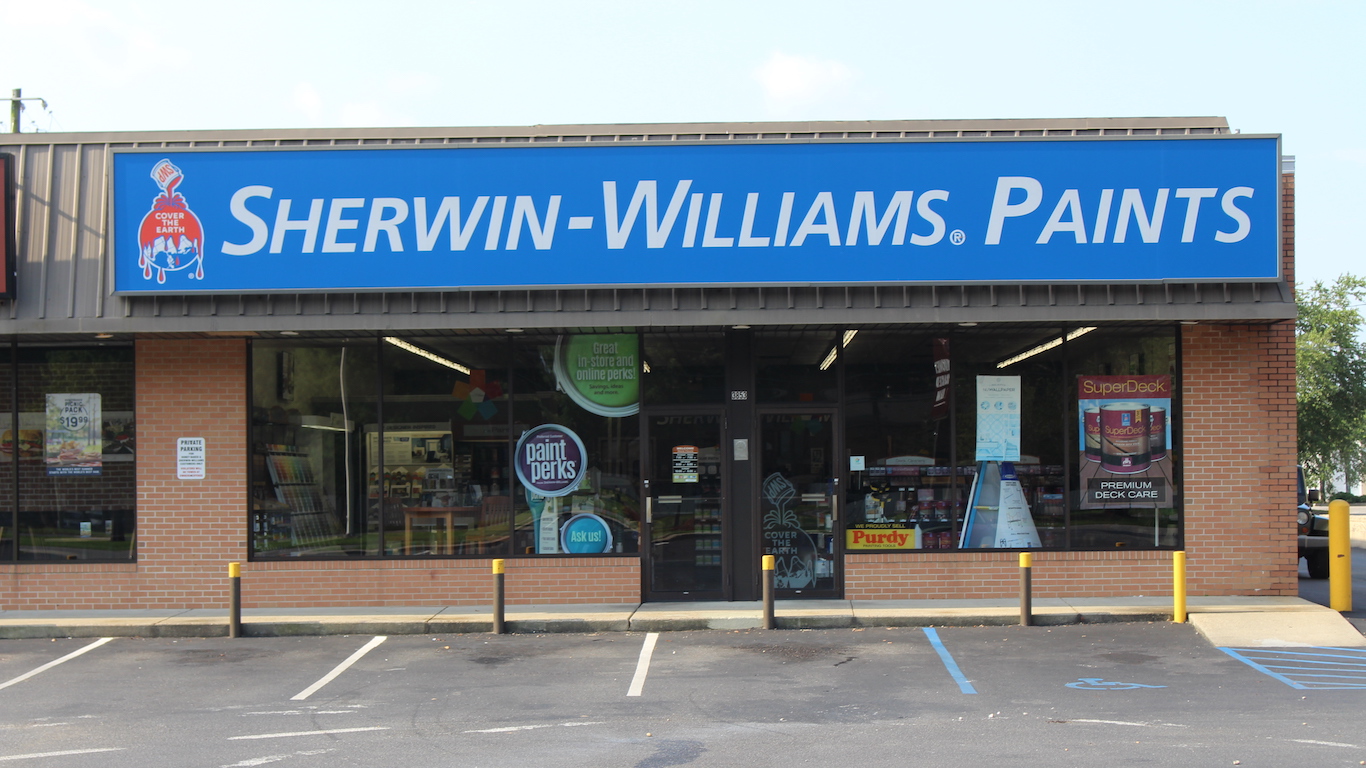
10. The Sherwin-Williams Company
> 2017-2018 sales growth: 17.0%
> 2017 revenue: $14.98 billion
> 2018 revenue: $17.53 billion
> Headquarters: Cleveland, Ohio
> # of locations: 4,900+
Anyone who has ever painted his or her house, or even just a wall, has probably brushed on one of Sherwin Williams paint products. Homeowners and contractors are not the only ones who buy Sherwin-Williams paint, however; industrial and transportation companies also use the company’s products. Sherwin-Williams reported net sales of $17.5 billion in 2018, up 17.0% from just under $15 billion in 2017.
[in-text-ad]
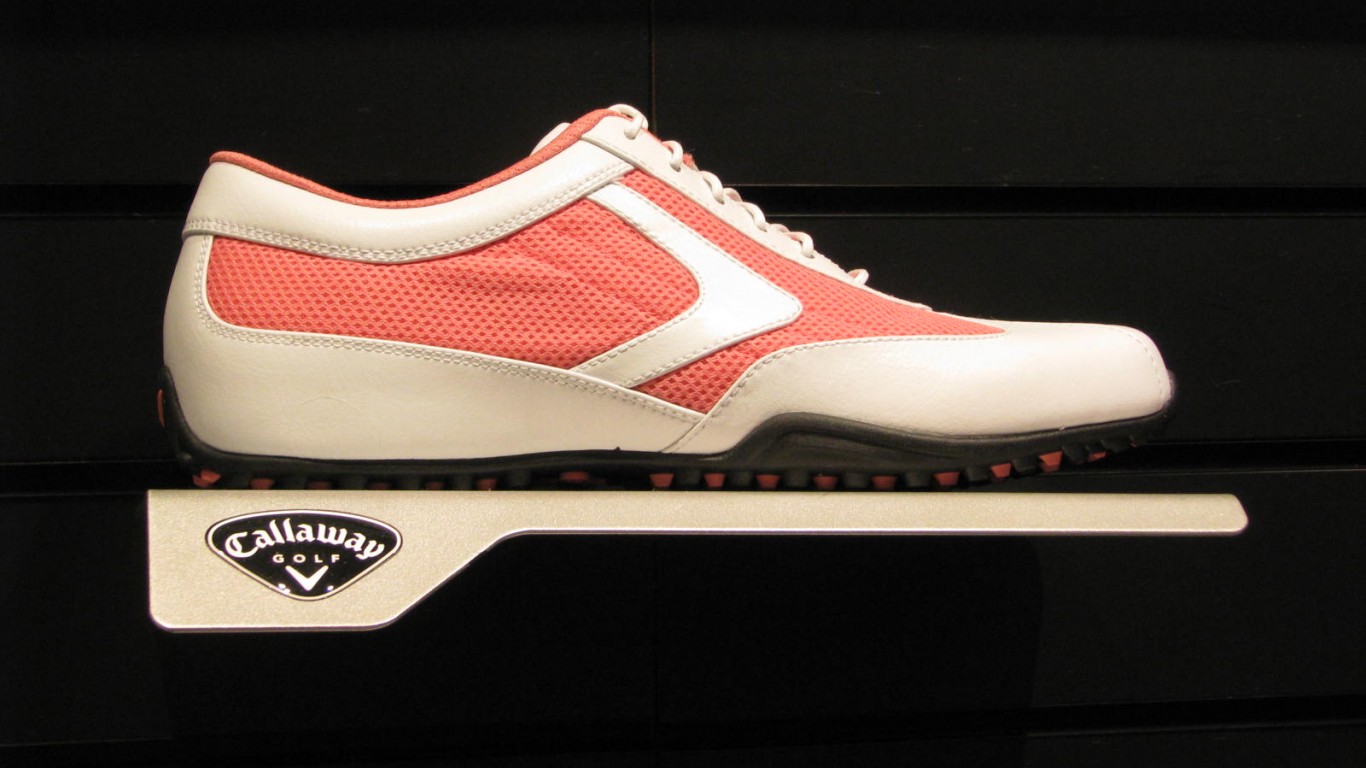
9. Callaway Golf
> 2017-2018 sales growth: 18.5%
> 2017 revenue: $1.05 billion
> 2018 revenue: $1.24 billion
> Headquarters: Carlsbad, California
> # of locations: N/A
Founded in 1982, Callaway Golf develops and sells premium golf equipment and accessories, including its Odyssey putter, ranked the best seller in the sport. But that is not the only putter the company offers. In 2016, Callaway purchased Toulon Design’s putter. The popularity of golf has certainly spurred net sales, which rose by 18.5% from a little over $1 billion in 2017 to $1.2 billion last year.
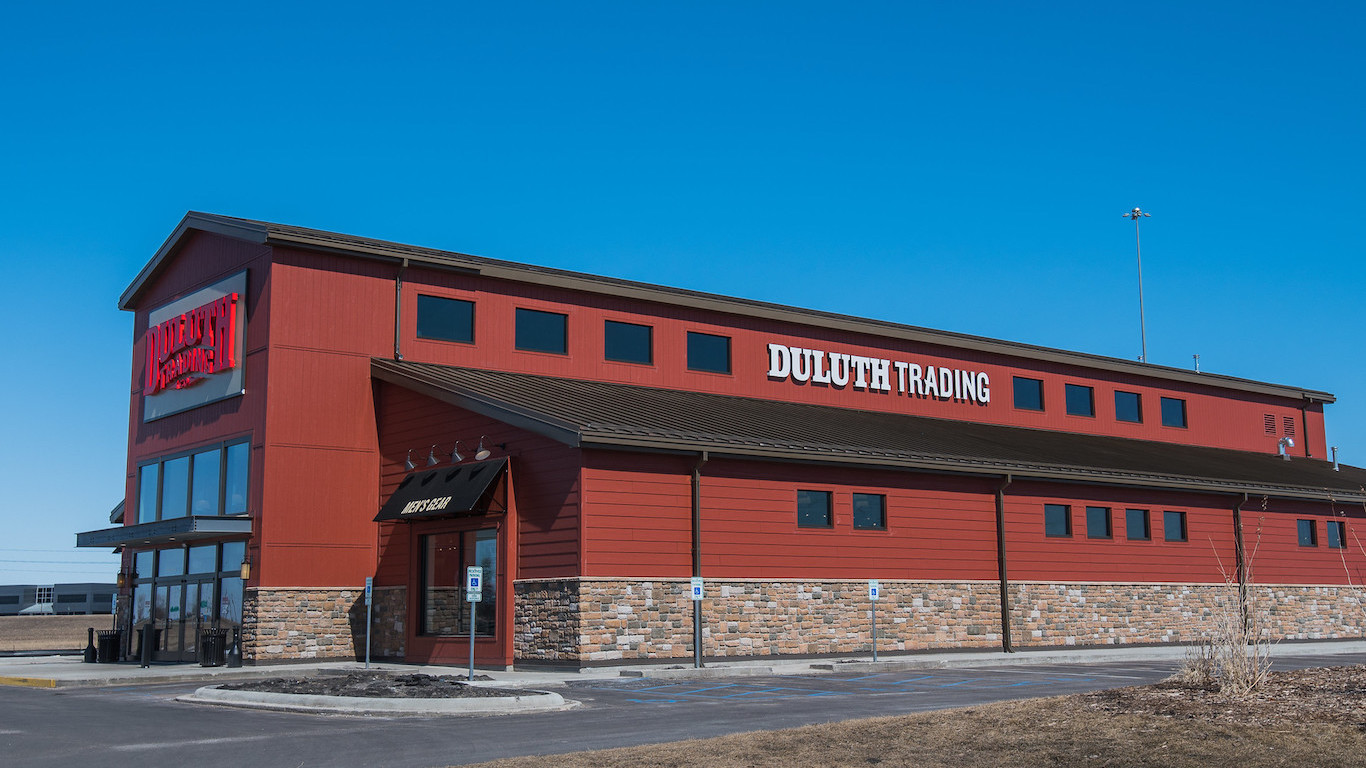
8. Duluth Trading Company
> 2017-2018 sales growth: 20.5%
> 2017 revenue: $471.45 million
> 2018 revenue: $568.10 million
> Headquarters: Mt. Horeb, Wisconsin
> # of locations: 51 locations nationwide
Much like Lululemon Athletica revolutionized workout wear, Duluth Trading Company aims to make work clothes functional and comfortable. The company had 36 quarters of consecutive net sales growth through the end of 2018, ending that fiscal year with $568 million in net sales and a year-over-year increase of 20.5%. Nevertheless, the company does not want to rest on its success. In the coming year, it wants to boost its omnichannel ecommerce platform.

7. Coty
> 2017-2018 sales growth: 22.8%
> 2017 revenue: $7.65 billion
> 2018 revenue: $9.40 billion
> Headquarters: New York, New York
> # of locations: N/A
With a stable of 75 well-known brands like Cover Girl, Max Factor, and Clairol, Coty is practically synonymous with cosmetics and fragrances. Francois Coty launched his eponymous company 1904. During its 115-year history, it has grown into a business behemoth that has recorded $9.4 billion in net sales in 2018, up 22.8% from $7.65 billion in 2017, and which no employs 20,000 workers in 46 countries.
[in-text-ad-2]
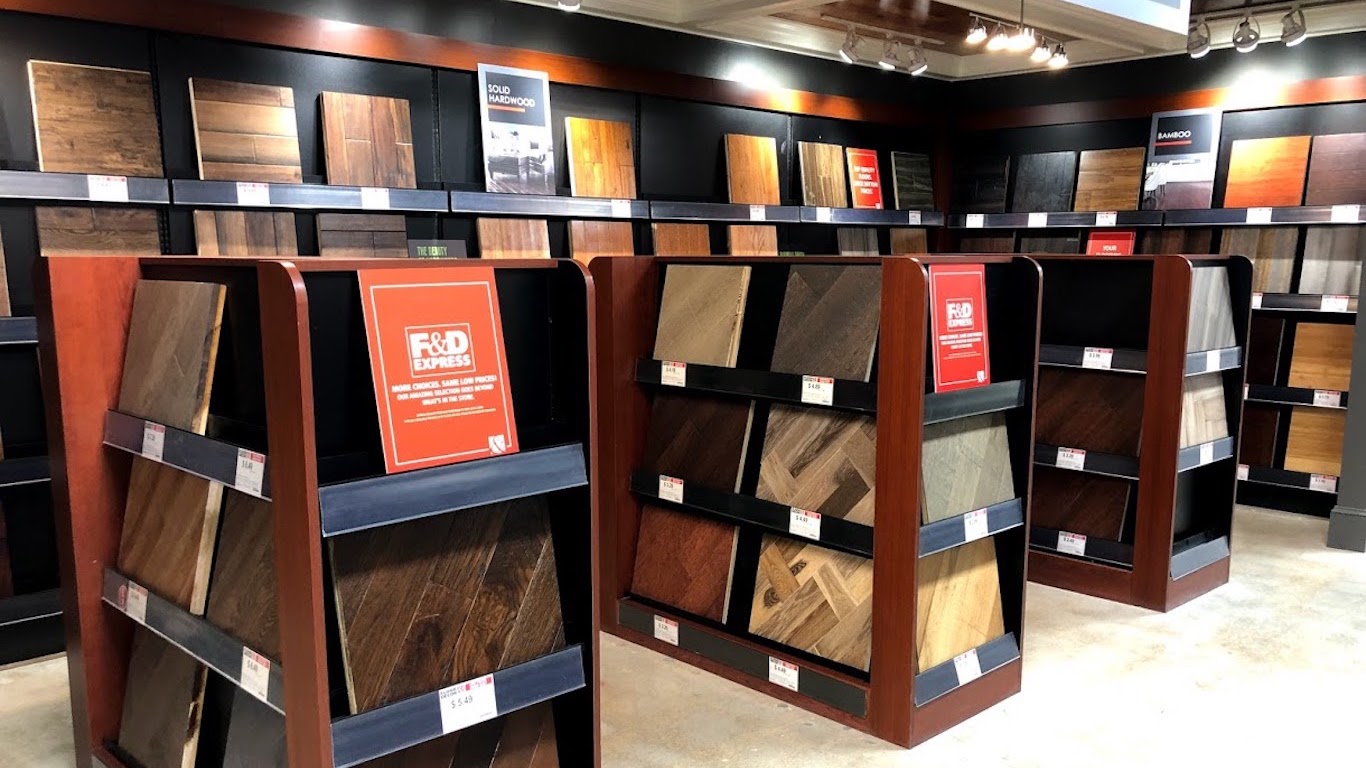
6. Floor & Decor
> 2017-2018 sales growth: 23.5%
> 2017 revenue: $1.38 billion
> 2018 revenue: $1.70 billion
> Headquarters: Atlanta, Georgia
> # of locations: 100
Launched 19 years ago, Floor & Decor attracts DIY enthusiasts who want to change the look of their home flooring. The chain’s 75,000-square-foot, warehouse-style stores are packed with a variety of tiles, wood flooring, laminates, and natural stone options. Between 2017 and 2018, net sales rose by 23.5% from nearly $1.4 billion to $1.7 billion.
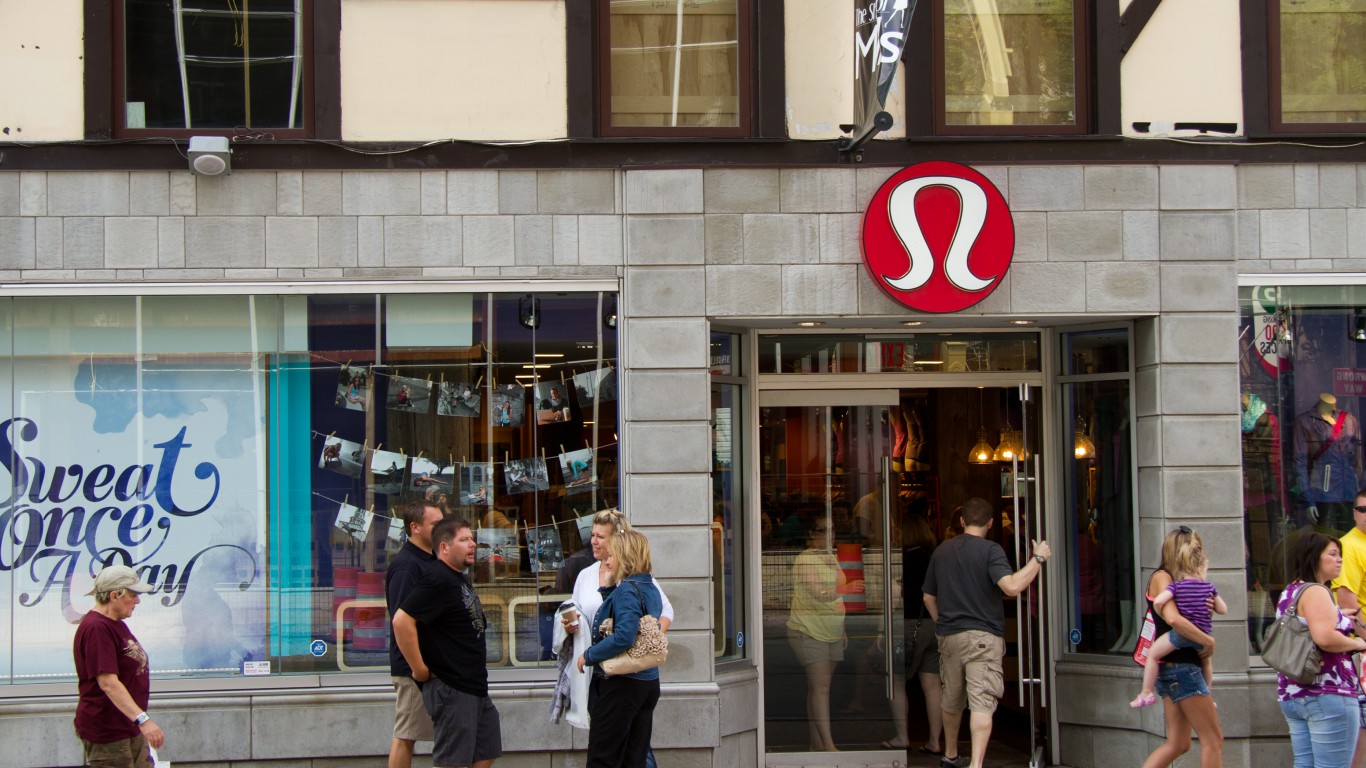
5. Lululemon Athletica
> 2017-2018 sales growth: 24.1%
> 2017 revenue: $2.65 billion
> 2018 revenue: $3.288 billion
> Headquarters: Vancouver, Canada
> # of locations: 406
Workout clothes once meant sweatpants and a bulky sweatshirt. That all changed in 2005, when Lululemon Athletica inspired the “ath-leisure” apparel trend with its stylish, fashion-forward yoga, running, and training outfits that were comfortable enough for exercise, but also nice enough to wear to the grocery store. In April, the company embarked on a growth strategy that aims to enter new markets, like China; double revenues from its mens’ sales; and create a more integrated customer experience at its stores. Lululemon aims to build on net revenues that hit $3.3 billion in fiscal 2018, up 24.1% from $2.6 billion in fiscal 2017.
[in-text-ad]
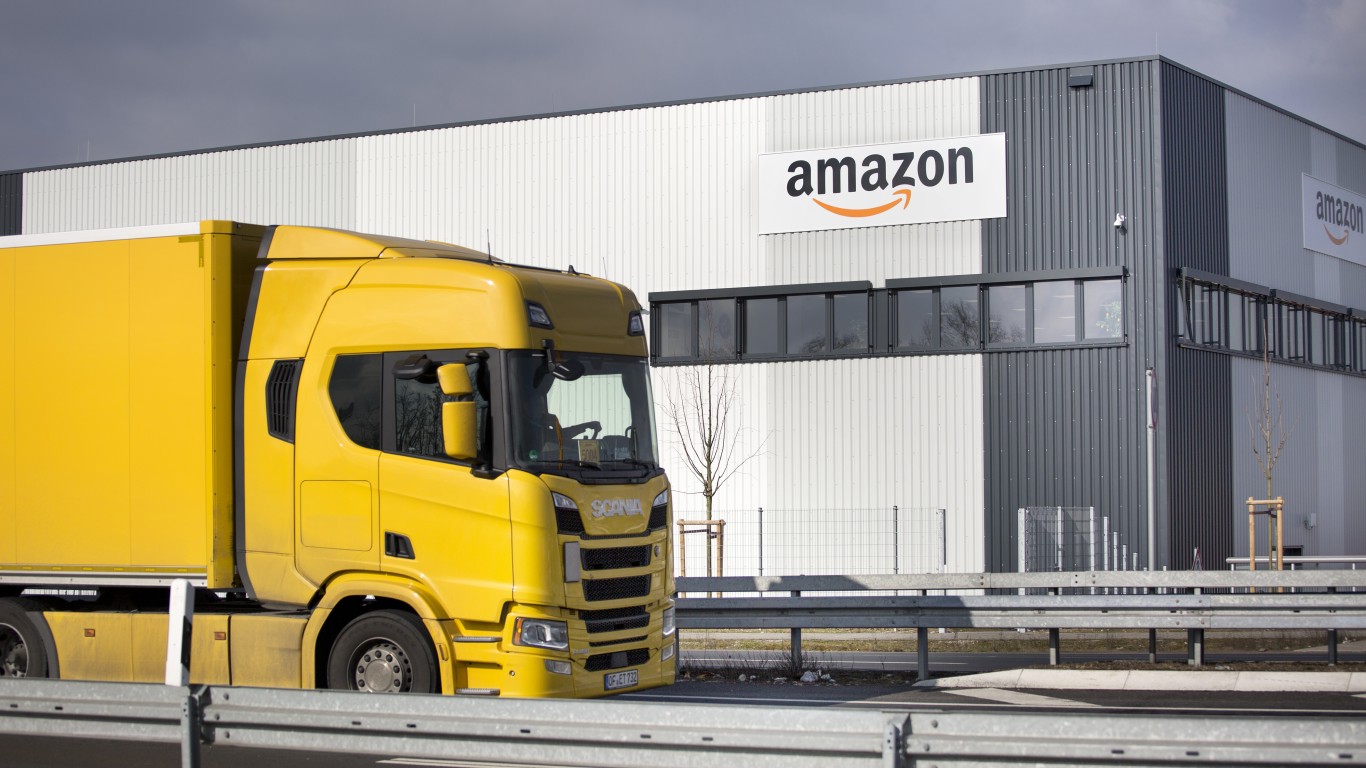
4. Amazon.com
> 2017-2018 sales growth: 30.9%
> 2017 revenue: $177.87 billion
> 2018 revenue: $232.88 billion
> Headquarters: Seattle, Washington
> # of locations: ~600
Love it or hate it, Amazon has completely disrupted and altered the retail landscape with its plethora of products (everything from groceries and clothing to electronics), inexpensive prices, and quick delivery. While critics bemoan its impact on traditional retailers, consumers cannot seem to get enough, as evidenced by the ever-growing ecommerce giant’s net sales. Amazon revenue continued to grow last year, reporting a 30.9% jump from 2017’s revenue of $177.8 billion to 2018’s revenue of $232.8 billion last year.
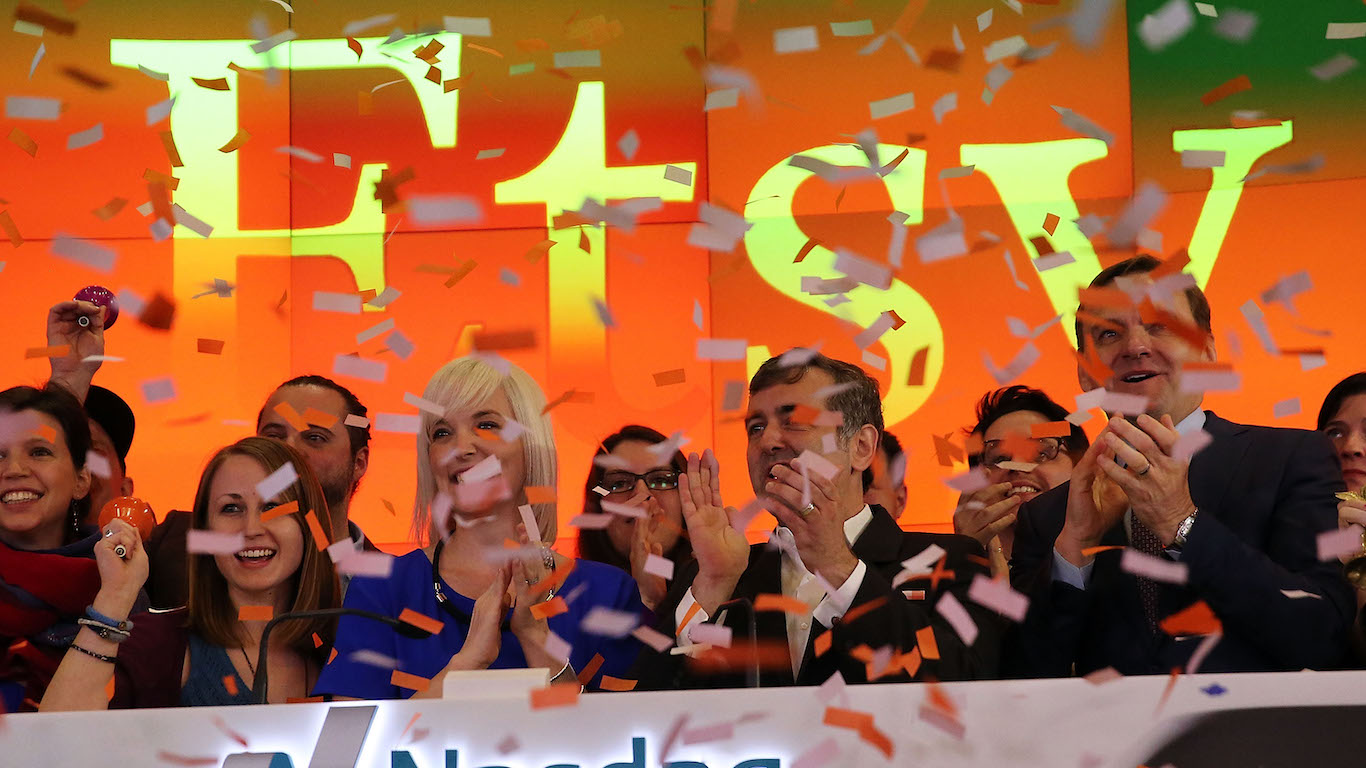
3. Etsy
> 2017-2018 sales growth: 36.9%
> 2017 revenue: $441.23 million
> 2018 revenue: $604.00 million
> Headquarters: Brooklyn, New York
> # of locations:
Building on the peer-to-peer ecommerce trend, Etsy brings people together on its platform — people who want to sell their creative wares and those who wish to buy unique items. Currently, the retailer has nearly 40 million active buyers perusing goods from 2.1 million sellers. Gross merchandise sales rose from $3.2 billion in 2017 to $3.93 billion in 2018, while revenue soared to $604 million last year from $441 million in the prior year, a 36.9% growth.
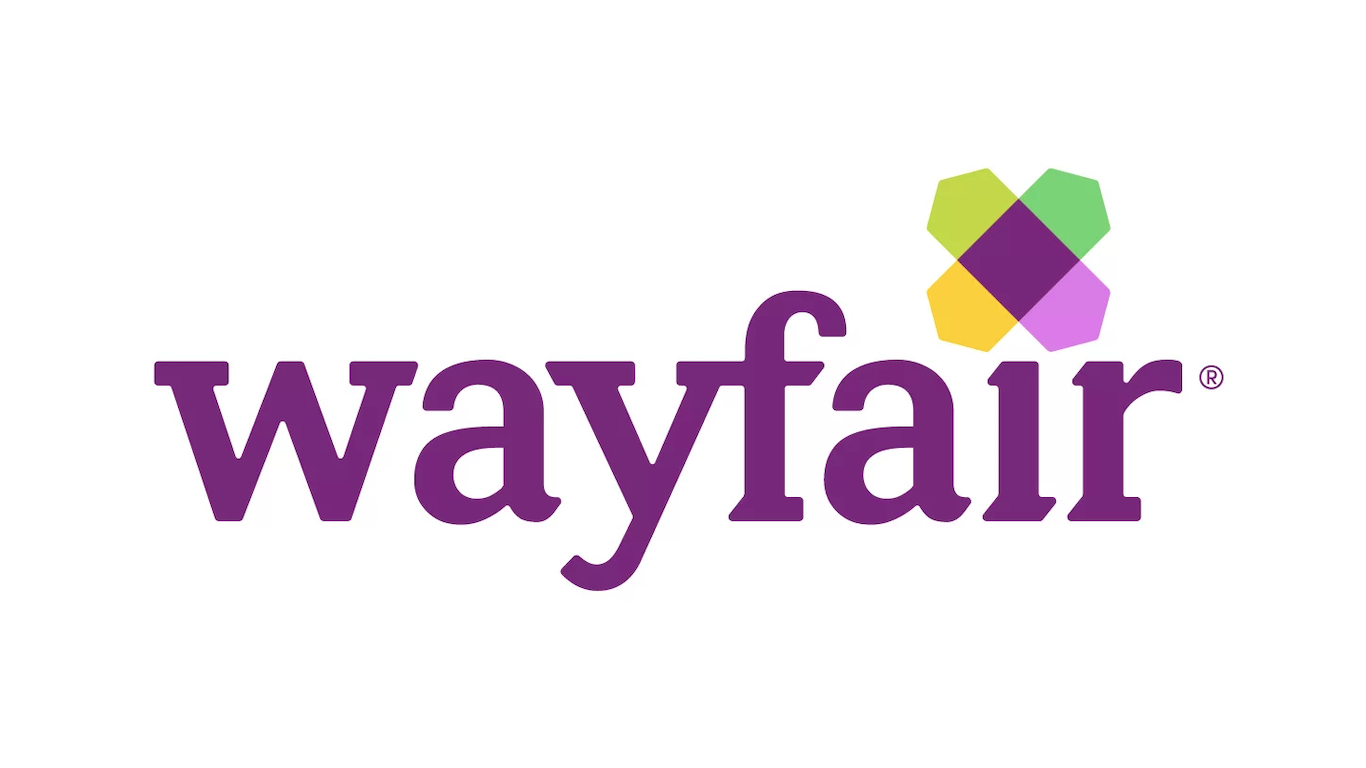
2. Wayfair
> 2017-2018 sales growth: 43.6%
> 2017 revenue: $4.72 billion
> 2018 revenue: $6.79 billion
> Headquarters: Boston, Massachusetts
> # of locations: N/A
Offering home merchandise from more than 11,000 suppliers, Wayfair’s target audience is women between 35 and 65 with an annual household income between $50,000 and $250,000. These target customers have money to spend on their home decor, but do not necessarily want to browse a brick-and-mortar store to find the unique furnishings they desire. Apparently, they are finding what they want at Wayfair. Net revenue for Wayfair leaped from $4.7 billion in 2017 to nearly $6.8 billion in 2018, a 43.6% growth.
[in-text-ad-2]

1. Gaia, Inc.
> 2017-2018 sales growth: 55.0%
> 2017 revenue: $28.29 million
> 2018 revenue: $43.84 million
> Headquarters: Louisville, Colorado
> # of locations: N/A
On Gaia, subscribers can download more than 8,000 videos about yoga, meditation, deep space, or alternative healing. People appear hungry for these kinds of videos, which they view in their home. Gaia’s net revenue shot up 55.0% in 2018 to $43.8 million compared to $28.4 million in 2017. The biggest jump was in net revenue from streaming.
100 Million Americans Are Missing This Crucial Retirement Tool
The thought of burdening your family with a financial disaster is most Americans’ nightmare. However, recent studies show that over 100 million Americans still don’t have proper life insurance in the event they pass away.
Life insurance can bring peace of mind – ensuring your loved ones are safeguarded against unforeseen expenses and debts. With premiums often lower than expected and a variety of plans tailored to different life stages and health conditions, securing a policy is more accessible than ever.
A quick, no-obligation quote can provide valuable insight into what’s available and what might best suit your family’s needs. Life insurance is a simple step you can take today to help secure peace of mind for your loved ones tomorrow.
Click here to learn how to get a quote in just a few minutes.
Thank you for reading! Have some feedback for us?
Contact the 24/7 Wall St. editorial team.
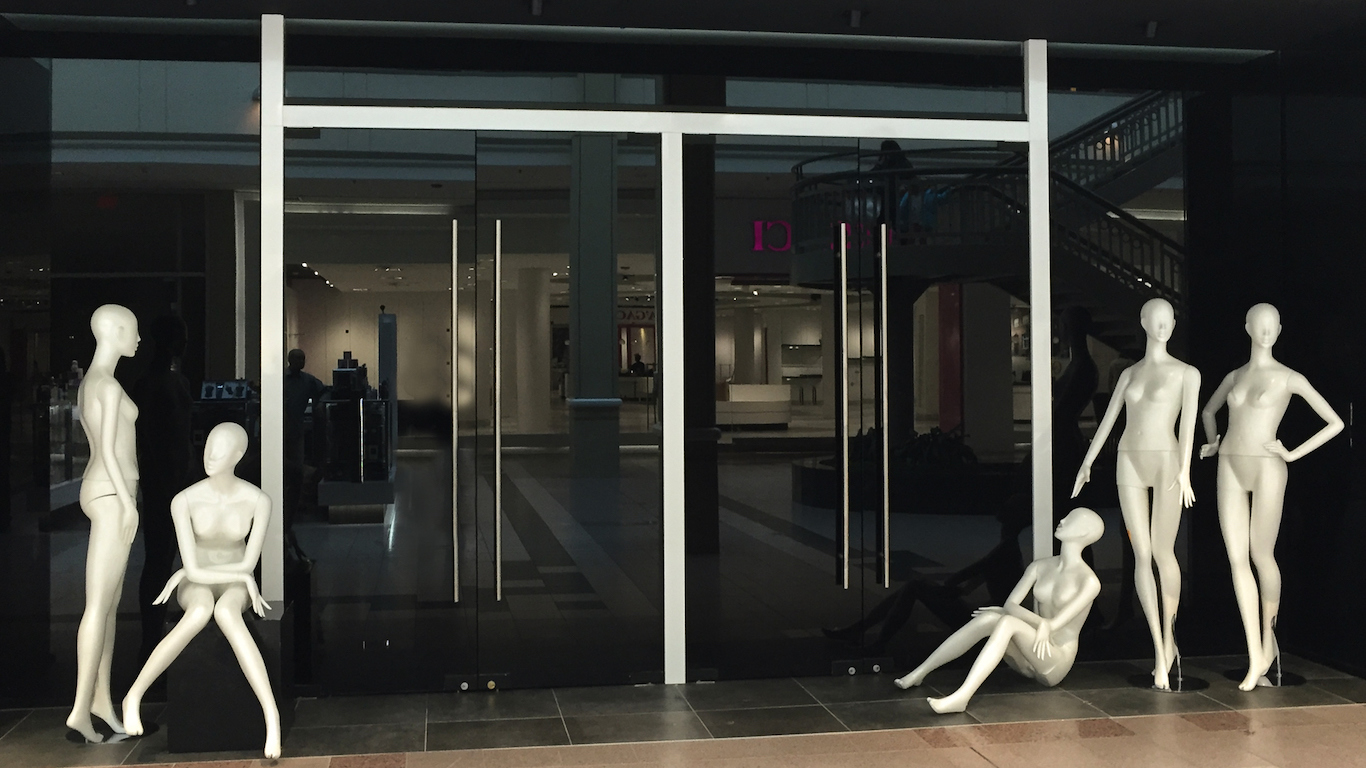 24/7 Wall St.
24/7 Wall St.


